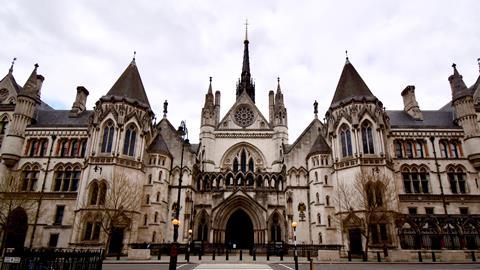A Court of Appeal judgment granting an anonymity order in a clinical negligence case offers ‘much-needed clarity’ for lawyers seeking to protect vulnerable people, according to the claimant’s solicitors.
Law firm Hugh James is acting in PMC (a child by his mother and litigation friend FLR) v A Local Health Board.
In November last year, the High Court refused to grant an anonymity order in the case because the individual and his family had already featured extensively in media coverage. Mr Justice Nicklin said the extent of reporting on the claimant’s story would make any anonymity order ‘unjustifiable and futile’ and that the application was ‘simply too late’.
The court heard that the claimant was born in 2012 at one of the defendant’s hospitals and developed health problems. It was claimed that negligence led him directly to the claimant developing cerebral palsy. Liability was admitted and a quantum-only trial fixed for 10 days in December 2025.
Hugh James had issued the anonymity application a day after being contacted by a journalist who had access to a copy of the particulars of claims and wanted to publish an article about the case. The claimant’s mother (acting as litigation friend) did not wish to engage with the media at all, but the family had previously featured in articles about the claimant’s situation.
The claimant remained anonymous pending an appeal. Handing down judgment today, the Court of Appeal (Sir Geoffrey Vos, master of the rolls with Lord Justices Warby and Whipple) ‘reached the clear conclusion that a prospective (rather than retrospective) anonymity order should be given in this case and that the judge at first instance was wrong to reject the common law power to grant an anonymity order’, Hugh James said.
In a summary issued to the media, the CoA stressed that ’the main features making it strictly necessary here to make a prospective WO [withholding order] and an RRO [reporting restrictions order], in the interests of justice, were (i) the extreme vulnerability of the claimant, and (ii) the serious infringement upon the claimant’s private and family life in relation to medical details, family circumstances and financial matters that this litigation would involve, if the details were reported in the media alongside the claimant’s name.’
The court added: ’It should not be assumed that a derogation from the open justice principle would be held to be strictly necessary in a case where the evidence did not cover all these factors and was less compelling. Each case would need to be considered on its own facts.’
Carys Lewis, associate in Hugh James’s clinical negligence team, commented: ‘The decision offers useful guidance for legal teams seeking to protect vulnerable claimants without unduly restricting press access or public scrutiny. The Court of Appeal acknowledged that providing a prospective anonymity order in this case will not prevent the media reporting on matters of public interest arising from the litigation, instead these details and details of any settlement can be published but without the claimant being identified. The balance that the Court of Appeal has struck is welcomed in this case and provides useful guidance to practitioners seeking anonymity orders in the future.’
She added: ‘The judgment also confirms that an anonymity order can be applied for during and throughout proceedings if required, and in circumstances where the family has been involved in previous publicity. The Court of Appeal emphasised that whether derogation from open justice is appropriate will depend on the facts of each individual case.’
Robert Weir KC of Devereux Chambers and Robert Oldham of 12 KBW, instructed by Stephen Webber (partner in the clinical negligence team at Hugh James) and Carys Lewis, appeared for the claimant.



























